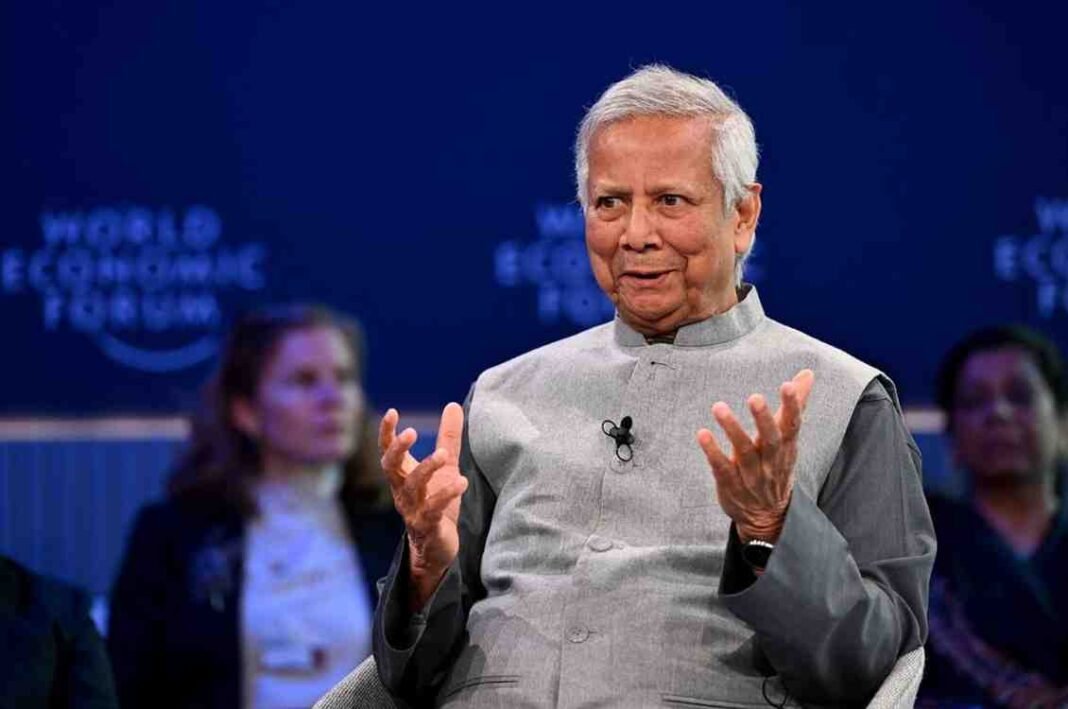At the World Economic Forum in Davos, Muhammad Yunus, the chief adviser of Bangladesh’s interim government, announced that the country’s next elections are anticipated to take place in late 2025 or mid-2026.
This timeline follows the recent ousting of the previous regime, which was catalyzed by a significant student uprising last year. Yunus emphasized that the election schedule is contingent upon the successful implementation of a reform agenda aimed at overhauling the nation’s political and institutional framework.
Yunus stated, “By the end of this year, we will finalize a short reform agenda.” He further explained that if the public opts for a more extensive set of reforms, the elections could be postponed until mid-2026. The reform initiative will be supported by 15 commissions tasked with redesigning various national institutions, including the constitution and the judiciary.
The interim chief adviser highlighted the need for a transparent electoral process, noting that the previous elections, held over the last 16 years, were marred by corruption and manipulation. “Under the former regime, elections were conducted without genuine voting, disenfranchising millions of young citizens,” he remarked.
Yunus assured that the upcoming elections would be conducted fairly, allowing every eligible voter to participate without fear of intimidation or fraud. “We want to ensure that the youth, who are voting for the first time, have the opportunity to cast their ballots freely. This generation is our future, and they must have a voice in shaping it,” he added.
Reflecting on the student-led uprising that led to the collapse of Sheikh Hasina’s government, Yunus shared that he was in Paris during the protests but was profoundly moved by the unity displayed by the youth. “There was no central plan, no leader. It was a spontaneous response to years of oppression, and it shook the government to its core,” he explained.
Yunus emphasized that the people of Bangladesh are determined not to revert to the past. “We are committed to creating a new Bangladesh—one that is genuinely democratic and inclusive,” he stated.
His immediate priorities include restoring order and revitalizing the economy, which he described as having been “plundered” during Hasina’s administration. A government-commissioned report revealed that approximately $17 billion was illicitly transferred out of the country, with loans issued under false pretenses.
“The way they did it was highway robbery,” Yunus asserted, criticizing the previous regime for using the judiciary as a tool of oppression, resulting in the imprisonment and disappearance of thousands of dissenters. He characterized the situation as a “self-destructive civilization,” where rampant corruption and suppression have left the economy in disarray.
Yunus views the reform process as both a monumental challenge and a unique opportunity for Bangladesh to start afresh. “We’re beginning with the basics: restoring the economy, rebuilding the banking system, and re-establishing effective governance,” he said.
Beyond immediate governance issues, Yunus envisions a broader transformation for the country. He underscored the urgent need to address climate change, which poses significant risks to Bangladesh due to its geographical vulnerability to flooding and environmental degradation. “We are one of the countries most exposed to environmental challenges, and this makes our task all the more urgent,” he noted.
Yunus also expressed optimism about the potential of the youth, who played a pivotal role in the recent political upheaval. “This generation is the most powerful in human history,” he declared, highlighting how global connectivity through technology empowers young people to effect change. “These young individuals are not just Bangladeshi anymore; they are global citizens. When they decide enough is enough, no one can stop them,” he asserted.
In closing, Yunus called on the international community to pay closer attention to Bangladesh’s recent experiences, urging global institutions to study the country’s upheaval as a powerful example of youth-led movements and grassroots change. “Bangladesh should be studied. It offers a glimpse into what can happen when a generation rises up and refuses to be ignored,” he concluded.
As Bangladesh embarks on this transformative journey, the world watches closely, hopeful for a new era of democracy and inclusivity in the nation.









